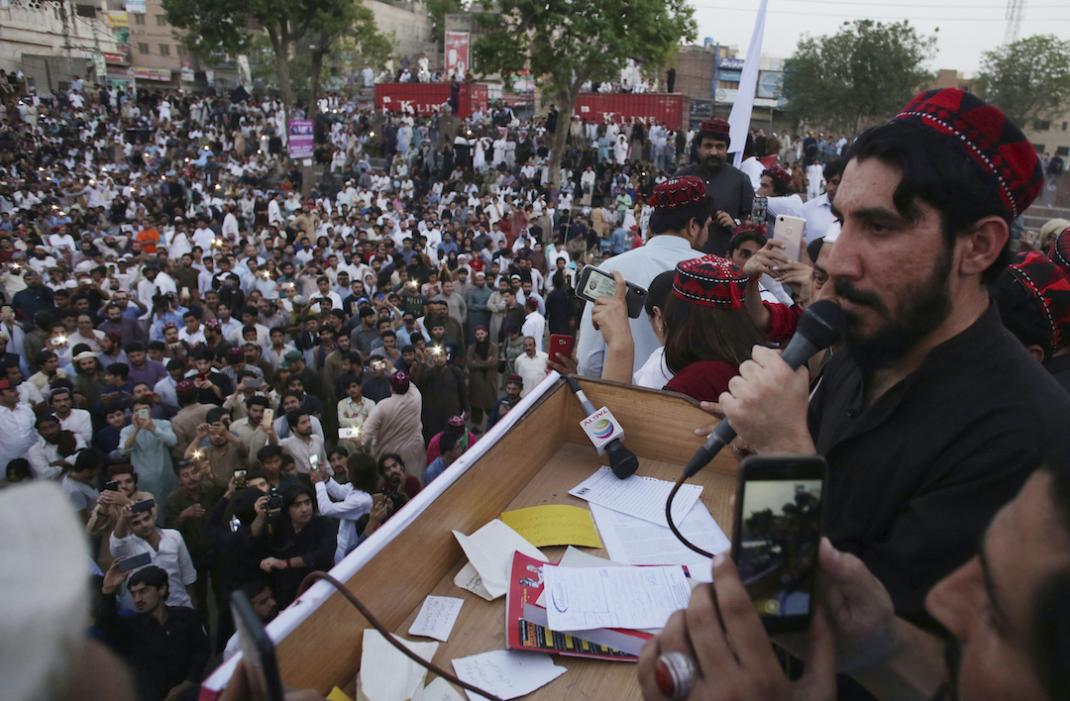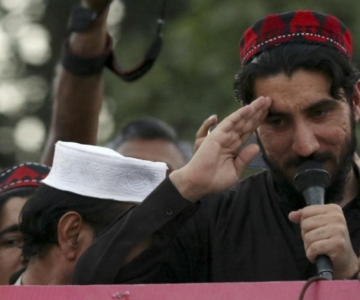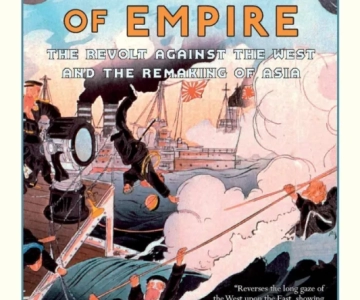For weeks, the young Pashtuns are leading a broad, horizontal resistance known as Pashtun Tahaffuz Movement (PTM). This uprising of sorts is unique in many ways. It is not sponsored by a political party, nor is it an electoral crusade. It challenges the complacency of a state that has done little to acknowledge that its tribal population is nothing more than second-class citizens, deprived of fundamental rights guaranteed in the constitution. This movement also challenges the official security paradigm that considers Afghanistan as a territory to be managed lest the enemy India occupies it and adds to the threat.
The securitisation of discourse is so acute that for many days the mainstream media tried to blackout the Pashtun Tahaffuz Movement. Traditionally, Pakistan’s holier-than-thou television channels are not interested in Balochistan or federally administered tribal areas (FATA). There are few rating meters installed there and it is bad business to cover events related to these areas. Their self-satisfying slogans ring hollow as the imperatives of news programming are largely profit oriented. In the case of PTM, the mainstream media were also exercising self-censorship. Since 2014, the electronic media freedoms have been heavily compromised and overt censorship has been replaced by more sophisticated self-censorship and toeing the line. By the time former PM Nawaz Sharif was ousted — not for corruption incidentally — the media had popularised the belief that he was certainly the most corrupt politician Pakistan ever had. And the judicial ouster was relatively easier to implement.
When the young men (and a few women) of PTM reached Balochistan and expanded the ambit of this mobilisation with more direct criticism of state policies and excesses in the name of ‘security’, they were clamped down using the old remedies of the postcolonial state. Cases were registered in Balochistan against PTM leaders, including 24-year-old Manzoor Pashteen, for violating sections 153 (provoking with the intent to cause riot) and 153-A (causing enmity among groups) of the penal code.
Young Pashtuns have been booked under section 153A, a vaguely worded colonial-era relic. In 1957, a Pakistan court used this to convict Khan Abdul Ghaffar Khan aka Bacha Khan
This is double injury. First, the FATA population lives under the colonial legal system, i.e. the Frontier Crimes Regulation. And second when it protests for enforcement of constitutional rights and why people go missing another colonial legal provision is used. Section 153A is vaguely worded colonial era relic and has been used in the past as well. In 1957, a Pakistan court convicted Khan Abdul Ghaffar Khan aka Bacha Khan under this section. While the world celebrates his politics and non-violence philosophy, Bacha Khan is a traitor in the official narratives of our security state.
Suddenly, the electronic media also showed interest. Of course in some of the rallies, the impassioned young Pashtuns raised slogans which have been termed ‘objectionable.’ As the Station House Officer, Zhob told this newspaper, the cases were registered on directives from police higher ups since the “agencies and the GHQ were targeted in the speeches.”
Since then a good portion of TV commentary has tried to delegitimise and patronise these ‘misled’ youths. While some young men may have gotten carried away, the larger issues raised by PTM are valid and after 17 years of Pakistan’s complicated policy with respect to war on terror, such questions need to be asked in a democracy. When the civilian governments and the parliaments are not doing their job or are being manipulated (as demonstrated by legislative coup in Balochistan government and Senate elections), such questions are asked on streets. That is the natural order of things.
Since 2014, many street protests — the 2014, 2016 and 2017 dharnas — were rarely criticised. In fact, they were celebrated as ‘good’ things to fight corruption and portrayed as strengths of the semi-controlled democracy. The reason was simple that powers-that-be were not offended. In fact, more and more evidence now supports the view that they were sponsored by sections of deep-state.
But PTM and its leaders are ‘anti-state’, ‘traitorous’ because they refuse to accept that Pakistan’s security policies are infallible? Since 9/11, the tribal elders were systematically eliminated and militias comprising the Taliban family actually took charge, sometimes with legal cover of a peace deal. This had consequences for the local population, which were largely ignored. Who gives a toss about what happens on the margins when the power and narratives are controlled by the ‘mainstream’ urban Pakistan? The unclaimed, non-transparent and legally questionable drone strikes and their aftermath are just one segment of this ‘reality’. Pakistani state’s indiscriminate anti-terror operations have resulted in dislocations and upheavals, which were largely invisible to many Pakistanis. PTM is actually telling a story that Pakistani media should have narrated. But the latter have faced restrictions on their coverage and reporting of events in the ‘violent’ badlands.
Nothing in Pakistan’s Constitution bars citizens from the right to dissect past excesses by state officials; and seek justice. Some pundits in the media and short-sighted policy wonks are doing a great disservice to the country by blocking a historic chance of course-correction. Pakistanis of all regions, backgrounds have paid a price for flawed policies that need to change.
Without justice and equal citizenship, defence capabilities mean little for there will always be discontent and festering wounds. This was the greatest lesson of 1971, which no one wants to talk about. The real security of nations can only be garnered with full economic, social and cultural rights and a state that does not tear apart the social contract at will.
Pakistan’s youth population, its strife, its anger — especially in conflict and displaced communities — are real. The sooner it is acknowledged, the better. This is not the Pakistan of 1950s nor 1990s.
Published in Daily Times, March 18, 2018: Suppressing a youth movement will harm Pakistan’s future


